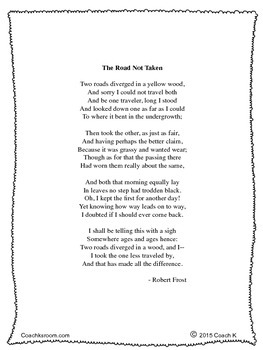
(You could call this contradiction, but it's just that on closer examination the difference has vanished. Both roads are good perhaps the one he didn't take is good too. So, then again (“Though as for that”), the difference is not such a big one, possibly even non-existent. Immediately after making this decision on such flimsy grounds though, he is aware that: Why? Simply because it appears “perhaps” better, after looking at its grass and feeling that it needs walking on. He's considered one road and then decided to take the other one, which (“as just as fair”) is very similar. Of course, being a single person he can't travel both (what a delightfully absurd idea!), so he's having to make up his mind.

In the very first line the author sets the context quickly: here he is, faced with two roads in a wood. In the context of the poem, though, it appears that the author may have intended (see questions on authorial-intent) something else (or something more), which becomes apparent if we read the poem closely, in its entirety and in order. (The rhyme, the repetition of the “I”, …) So those who wish to “borrow” the language of a poet to express this idea about themselves are certainly not doing anything “wrong”. Here we have a master poet who has cloaked this idea in creative language, and there are all sorts of subtle things that make the words memorable and charming. To use language is to give expression to ideas language begins to turn into poetry when the ideas are striking, or the form is striking, or both. And why not? They express an idea that is almost heroic: of doing the unconventional thing, being a maverick rather a conformist, of the virtue of individualism that has always resonated in America, of the satisfaction (or regret!) that your choice ended up making a difference. These lines, the last three lines of Frost's The Road Not Taken, have been endlessly quoted by many people: as epigraphs in their books, on their personal web pages, and so on. This short story contains ideas which were later more developed in the Worldwar series, in which the invading aliens have an initial technological edge that is soon surpassed by human ingenuity and innovation.Quotes have a way of taking on a life of their own. It is a prequel story to "Herbig-Haro"-set several centuries after humanity has conquered the Orion Arm of the Milky Way- published a year before under the name "Eric Iverson". The story was first published in Analog Science Fiction in 1985. Unlike the broad reaching implications of the technology that Earth has developed, the gravity manipulation has no other uses.Īs Togram and another Roxolani captive realize that they have now given a far more advanced civilization the means to travel to countless worlds, the story closes with the two asking themselves, "What have we done?" In contrast, humanity somehow missed developing gravity technology and advanced further technologically. However, adopting the technology allowing for interstellar travel (and wars of conquest on a galactic scale) stifles further technological development as all the creative energies of societies that find it go into perfecting it. This enabled them to engage in wars of conquest on a galactic scale. When they are interrogated, the truth becomes evident: the method of manipulating gravity is absurdly simple, and species like the Roxolani are thus able to use faster than light travel with relatively primitive technological sophistication.


The battle is short, and most of the invaders are killed. Humans retaliate with automatic weapons and missiles. But as they begin their assault, things take a turn for the absurd-the Roxolani attack with matchlock weapons and black powder explosives. Humanity is awed by the invaders, as the maneuverability granted by that technology suggests the rest of their civilization is equally impressive. The Roxolani anticipate a simple and rewarding campaign, as they can detect no use of gravity manipulation, the cornerstone of their civilization. During a routine journey of conquest, they happen upon Earth. The story is told through limited third person point of view, with most of the story concerning a single Roxolani captain, Togram. Turtledove wrote a sequel, a short story entitled "Herbig-Haro". "The Road Not Taken" is a science fiction short story by American writer Harry Turtledove, set in 2039, in which he presents a fictitious account of a first encounter between humanity and an alien race, the Roxolani. 1985 short story by Harry Turtledove The Road Not Taken


 0 kommentar(er)
0 kommentar(er)
